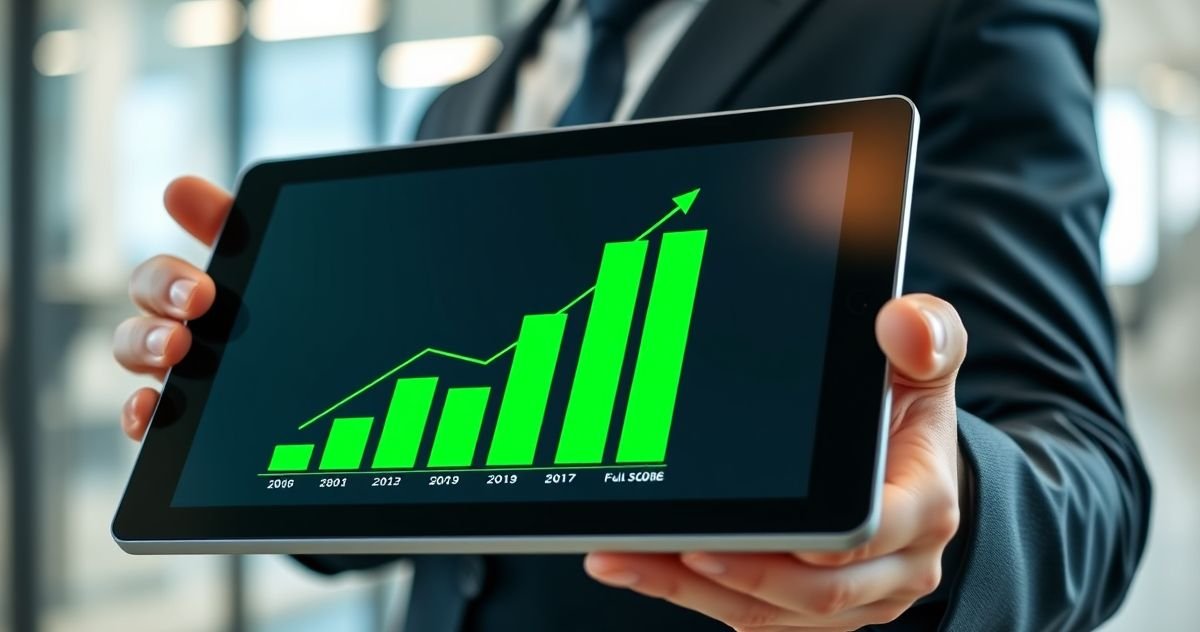How Business Credit Scores Are Calculated
Unlike personal credit scores that typically range from 300-850, business credit scores use different scales and are calculated by three main bureaus:
- Dun & Bradstreet (D&B): D&B’s primary score is the PAYDEX Score (1-100), which focuses solely on your company’s payment history to suppliers and vendors. A score of 80 indicates on-time payments, while a score of 100 signifies that your business consistently pays its bills 30 days ahead of schedule.
- Experian Business: The main score from Experian is the Intelliscore Plus℠ (1-100). It forecasts the likelihood of a business becoming seriously delinquent on payments within the next 12 months. A higher score means lower risk.
- Equifax Business: Equifax provides a Business Credit Risk Score™ (101-992). This score predicts the probability of a business incurring a 90-day late payment or worse in the near future.
These scores are generated using your company’s payment history with lenders and suppliers, total outstanding debt, industry risk factors, company size, and any public records like liens or bankruptcies.
Why Your Business Credit Score Is Crucial for Growth
A strong business credit profile is essential for creating financial separation between you and your company. It directly impacts your ability to operate and expand in several key ways:
- Access to Funding: When you apply for a small business loan, line of credit, or business credit card, lenders will pull your business credit report. A high score demonstrates low risk, increasing your chances of approval and helping you secure lower interest rates.
- Better Supplier Terms: Many suppliers use business credit scores to determine payment terms. A good score can help you get “net-30” or “net-60” terms, allowing you to pay for goods or materials 30 to 60 days after receiving them. This is a vital form of short-term, interest-free financing that improves cash flow.
- Lower Insurance Premiums: Insurers often use credit data to set premiums for general liability or commercial auto policies. A history of financial responsibility can lead to significant cost savings.
- Protecting Personal Assets: By establishing a separate credit identity for your LLC or corporation, you strengthen the legal veil that protects your personal assets (like your home and savings) if the business encounters financial distress.
Business Credit vs. Personal Credit: Key Differences
While related, these two types of credit function in different ecosystems.
| Feature | Personal Credit | Business Credit |
|---|---|---|
| Identifier | Social Security Number (SSN) | Employer Identification Number (EIN) |
| Score Range | Typically 300–850 (FICO) | Varies by bureau (e.g., 1–100) |
| Key Bureaus | Experian, Equifax, TransUnion | Dun & Bradstreet, Experian, Equifax |
| Data Sources | Personal loans, mortgages, credit cards | Trade lines, business loans, supplier terms |
| Report Access | Free annual reports by law | Often requires a fee to access |
How to Build and Improve Your Business Credit
Building a strong business credit profile is a deliberate process. Follow these steps to establish and grow your score:
- Establish a Separate Legal Entity: Formally register your business as an LLC or corporation.
- Get Your Federal Tax ID: Obtain an Employer Identification Number (EIN) from the IRS. It’s free and acts as your business’s unique identifier.
- Open a Business Bank Account: Keep all business-related finances separate from your personal accounts to establish a clear financial record.
- Register with Dun & Bradstreet: Get a D-U-N-S Number, a unique nine-digit ID used to create your D&B credit file. As noted by the U.S. Small Business Administration, this is a foundational step.
- Open Business Credit Accounts: Apply for a business credit card or seek trade lines with suppliers who report payments to the business credit bureaus.
- Pay Bills Early: The single most important factor is consistent, timely payment. Paying early is even better and can significantly boost scores like the D&B PAYDEX.
- Monitor Your Reports: Regularly check your business credit reports for errors or inaccuracies. Disputing and correcting mistakes can provide a quick score improvement.
Frequently Asked Questions (FAQs)
Is my personal credit score used for my business?
For new businesses or sole proprietorships, lenders often review the owner’s personal credit as an indicator of reliability. However, as your business grows, its own credit history becomes the primary factor. Establishing a strong business score is key to separating your personal and business financial identities.
Do I need business credit if I’m not seeking a loan?
Yes. Beyond loans, business credit affects your ability to secure favorable terms with suppliers, lower your insurance premiums, and lease equipment. Good credit provides financial flexibility and options, even when you aren’t actively borrowing.
How long does it take to build business credit?
It can take anywhere from a few months to over a year to establish a solid credit score. Once you have an EIN and open accounts that report to the bureaus, a file is created. A consistent history of on-time or early payments for at least 6-12 months is needed to build a strong score.



